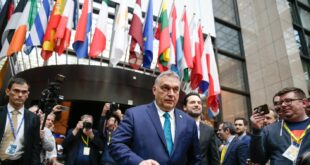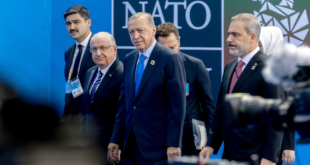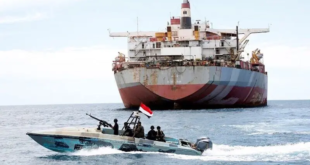Emirati Minister Omar Sultan Al Olama discussed Samuel Bankman-Fried’s infamous trip to Dubai, cryptocurrency regulation, decentralized finance and more in Davos.
An Emirati official addressed the World Economic Forum in Davos Thursday on the state of cryptocurrency in light of the recent market crash.
The United Arab Emirates’ minister for Artificial Intelligence, Digital Economy and Remote Work Application, Omar Sultan Al Olama, participated in a panel entitled “Finding the Right Balance for Crypto” at the annual forum.
The crash in the value of many cryptocurrencies and bankruptcy of the crypto exchange FTX last year were major points of discussion. Moderator Stacy-Marie Ishmael, who covers crypto for Bloomberg, alluded to FTX founder Sam Bankman-Fried’s visit to the UAE last year.
Bankman-Fried visited Dubai in October — just weeks before the Bahamas-based company went under — in an effort to secure funding. Olama downplayed the American’s connection to Dubai, saying he only visited once.
“Being a city that loves the future with every technology, whether it’s 3-D printing, AI … makes people assume it is where future is,” Olama said on Dubai’s appeal. “Bad actors don’t have a nationality and don’t have a destination.”
Olama pointed out that the collapse of other cryptocurrency entities, such as Singapore’s Three Arrows Capital, had no connection to the UAE.
“Bad actors want to ensure they affiliate with jurisdictions people feel protected in; they hear Singapore, London, Dubai,” he said. “You will see them everywhere.”
Olama called for governments to ensure those accused of financial wrongdoing cannot travel, saying they need to “work together with the industry to ensure that if someone does something wrong, he can’t move from one place to another.”
The UAE has implemented several measures in the past year to combat financial wrongdoing. Most recently, the UAE Central Bank announced guidance to combat money laundering for financial institutions in the Gulf state.
When Ishmael referenced reports that a third of Emiratis own cryptocurrency, Olama said, “It’s the first I hear some of those statistics.” The minister did acknowledge reading a report that said 4% of FTX’s customers were in the UAE. Olama said it also important to “assess the value” of FTX’s impact, as opposed to simply noting where the customers are based. He suggested some FTX customers in the UAE may not have had much invested with the firm or had dormant accounts.
Many cryptocurrency exchanges have announced moves to Dubai and Abu Dhabi, in part attracted by the virtual asset regulations the UAE issued last year.
There is also a relatively high degree of cryptocurrency-related innovation taking place in the UAE. In October, the Dubai-based cryptocurrency platform BitOasis announced a crypto-backed payment card.
Olama claimed the Emirates still wants to be a center for cryptocurrency despite recent events, saying, “Them calling the UAE home is definitely a positive thing.”
Finally, Olama discussed the future of decentralized finance, or DeFi, at the panel. DeFi is a form of fintech whereby individuals can conduct financial transactions such as loans without intermediaries such as banks, relying on technology such as digital financial databases. DeFi uses blockchain technology similar to that of cryptocurrency.
Olama called DeFi the “least regulated” sector in the crypto world. He added that DeFi could become a “bubble,” meaning it will crash after seeing a quick increase in value.
“We are going to see some bubbles in the DeFi space in the coming future that will require a lot of government intervention,” he said.
 Eurasia Press & News
Eurasia Press & News



